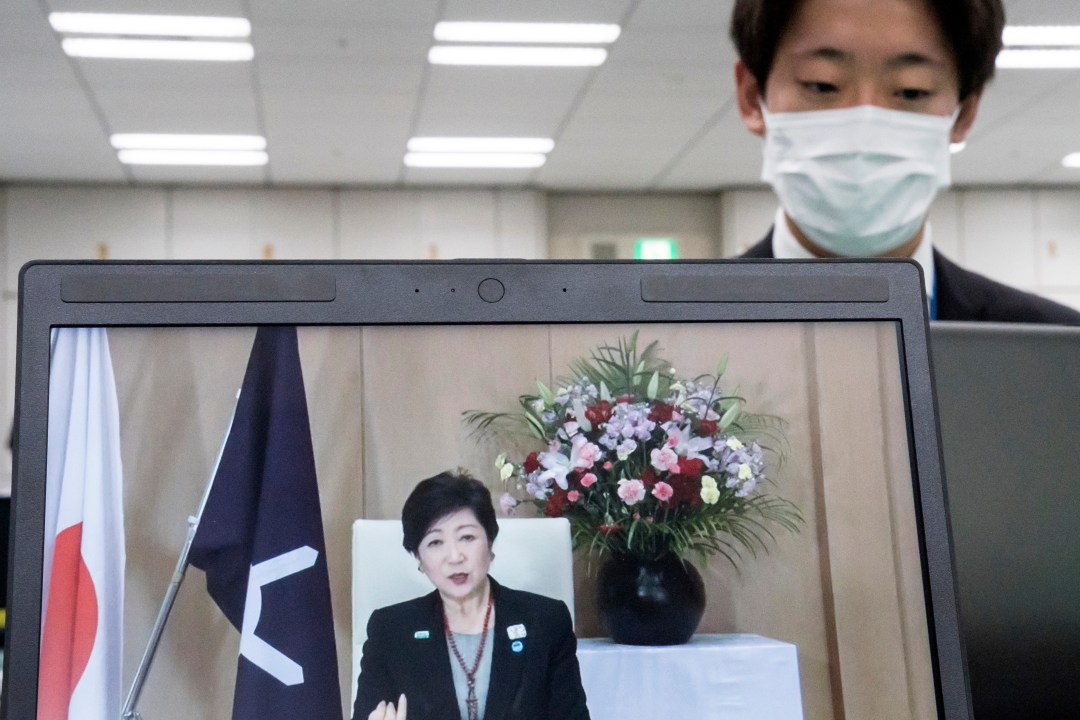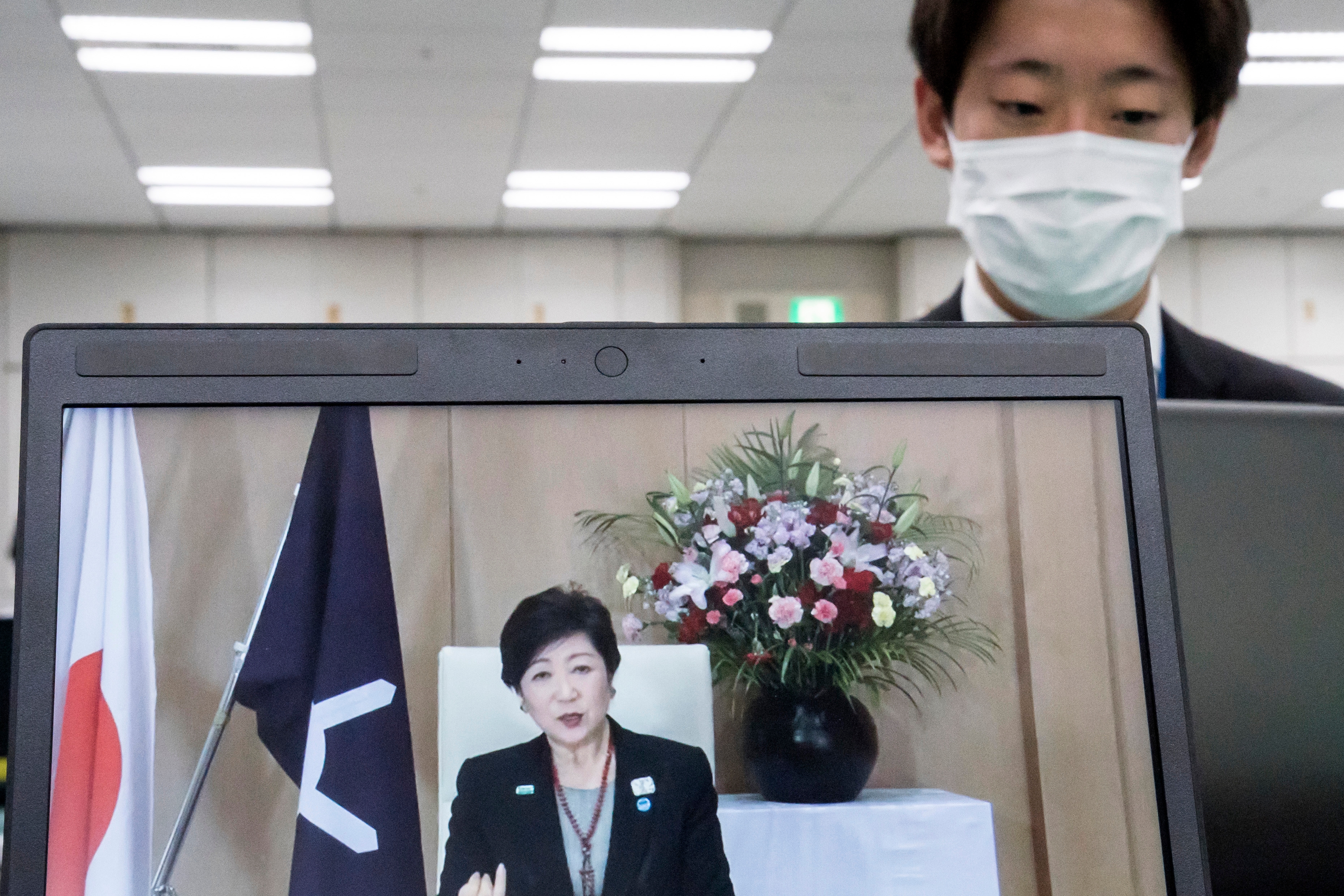Few politicians have come out of the corona crisis as well as Tokyo Governor Yuriko Koike. As the face of the metropolitan area’s official response to the pandemic, the 68-year-old former cabinet minister has won plaudits for her nightly face-masked updates and guidance briefings. For her efforts, she was rewarded with a landslide in last week’s gubernatorial election.
But with a recent surge in cases in the Tokyo area, Governor Koike has become embroiled in a war of words with the national government that could have long-term implications.
The latest infection figures in Tokyo (which have risen to around 150 cases a day) have alarmed many, but as ever with corona stats, context is everything. The government has quadrupled its testing since April, and the source of the new outbreaks is reassuringly explicable, with many originating in the Kabuki Cho red light district – an area not renowned for its social distancing habits or scrupulous hygiene levels. The majority of the new positive cases are in their 20s and 30s, and very unlikely to become seriously ill.
Not the kind of wave that would have impressed Hokusai then. But it has managed to increase the already simmering tension between the Tokyo governor and Prime Minister Shinzo Abe’s government. Koike had scored points early in the crisis by criticising Abe’s confusing safety slogans, and ridiculing his decision to send two cloth face masks to every household in Japan. Cabinet secretary Yoshihide Suga hit back by blaming the capital for the new cases and saying coronavirus is now a ‘Tokyo problem’
And like Sturgeon, Koike has power, and a platform, but without too much responsibility.
That clearly stung as Koike responded by categorising the government’s handling of the surge as incoherent, likening it to ‘turning on the heater and the air conditioner at the same time’ – a well-chosen analogy in a country where transgressing the ‘waste not want not’ philosophy (known as mottai nai) is tantamount to criminal behaviour.
To those in the UK unacquainted with Governor Koike, a useful comparison might be Nicola Sturgeon, another supposed winner in the Covid-19 media war. Like the Scottish First Minister, Governor Koike is at her best when in front of the camera. She is smooth, natural and reassuring, which is small wonder as she was a TV presenter before entering politics. She has fans, and her ubiquity during the crisis has even inspired a video game, with a Koike avatar making her way through a crowded Tokyo shouting her catchphrase ‘mitsu desu’ (a plea for social distancing).
Like Sturgeon, Koike has power and a platform, but does not have too much responsibility. The tough decisions get taken in Nagatacho rather than Shinjuku – and when the national government succeeds, Koike can bask in the reflected glory; when they fail, she isn’t slow to criticise.
Koike is so secure in her position that there is serious talk of her re-entering mainstream politics and making a run to be the nation’s first female Prime Minister. This would not be straightforward, as it would require her to stand down as mayor and negotiate her way up the faction-ridden Liberal Democratic Party hierarchy. But the obstacles seem manageable, and she has few high-profile rivals.
Not everyone rates Koike though, or considers her a figure of substance. Apart from fulfilling a campaign pledge to reduce the number of stray cats and dogs euthanised in Tokyo, she has few concrete achievements to her name in her long career (another similarity to Sturgeon). Her stints as a cabinet minister in the Junichiro Koizumi years were undistinguished, she finished a poor third in her attempt to become the LDP’s leader in 2008, and her attempt to set up her own party Macron-style in 2017, proved hopeless (it was dissolved in 2018).
Then there is the lingering suspicion of her unusual academic background – she dropped out of a Japanese college, and went to Egypt, where she eventually graduated from Cairo University. It is claimed that she speaks fluent Arabic – but when challenged to actually do so in the Tokyo assembly, she declined, which provoked disapproval from the members.
More serious criticism comes from Nobuo Sasaki, professor emeritus of the Chuo University Faculty of Economics, who predicts severe economic difficulties in the years ahead as a result of the successive shocks of the Olympics cancellation, the corona outbreak, and stimulus package.
Professor Sasaki believes Koike’s re-election was due to Tokyoites not wanting a change of leadership during a crisis, rather than any great faith held in her by the electorate. Others have highlighted the utter anonymity of her opponents, including a plethora of joke candidates of the Screaming Lord Sutch variety.
For the moment though, the Governor seems to have achieved immunity to censure – and in a war of words with the fading Abe, few would bet against her coming out on top.
How far it will take her remains to be seen.








Comments